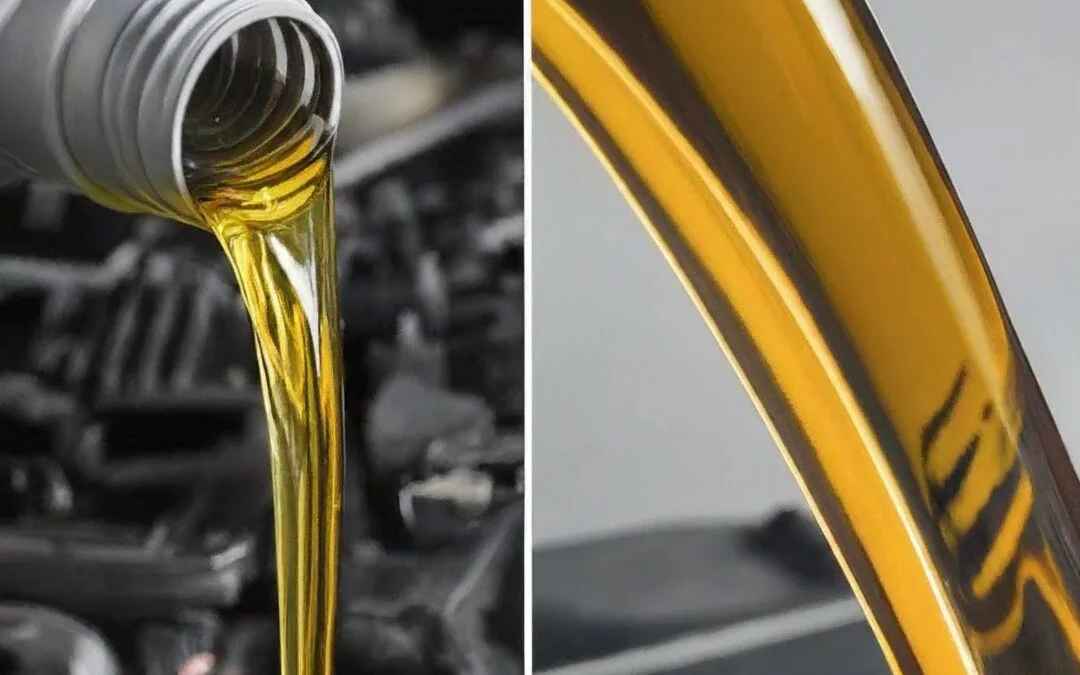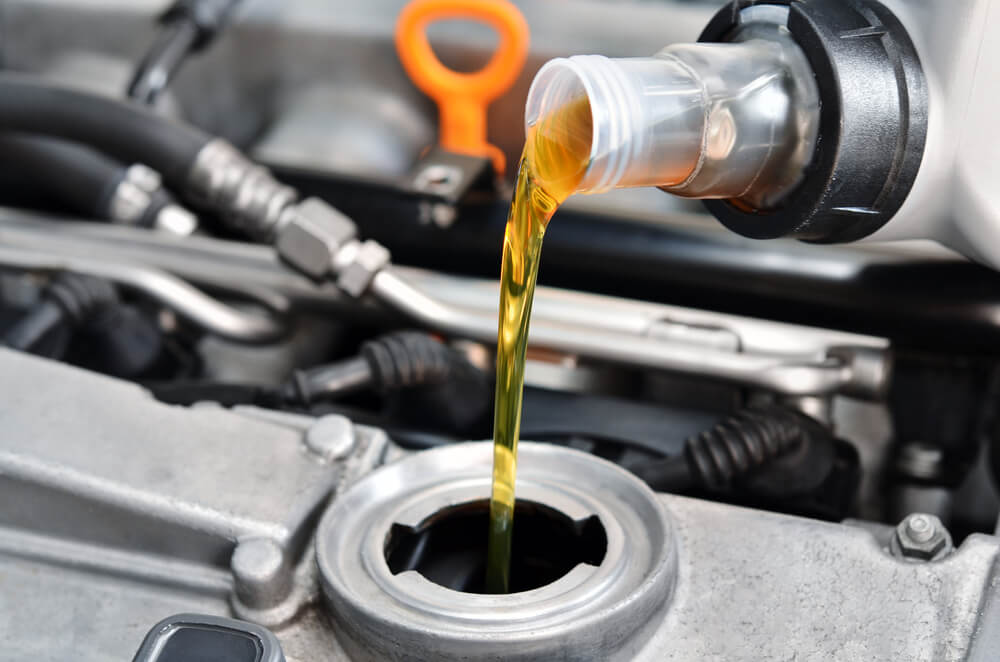Title: What Does Motor Oil Smell Like? Unveiling the Scent of Lubrication
Introduction:
Have you ever leaned over your car’s engine compartment during an oil change or routine maintenance and wondered, “What does motor oil smell like?” If you have, you’re not alone. Motor oil, an essential lubricant for your vehicle’s engine, has a distinct aroma that’s hard to ignore. It’s a scent that carries both the promise of smooth engine performance and the potential for trouble if not properly managed. In this blog, we’re going to delve into the intriguing world of motor oil odors. We’ll explore what gives it that distinctive smell, why it’s crucial to pay attention to it, and how identifying unusual odors can be a vital aspect of vehicle maintenance and care. So, let’s unravel the secrets hidden within that unmistakable scent of motor oil.
The Scent of Motor Oil: Unmasking the Aroma of Lubrication
When you open the hood of your car, whether it’s for a routine oil change or just a quick check-up, you’re likely to be greeted by a familiar and somewhat peculiar scent – the smell of motor oil. This distinctive odor is often a blend of various chemicals and compounds, and understanding it can provide valuable insights into the health of your vehicle’s engine.
Common Olfactory Characteristics:
The scent of motor oil is typically described as having several common characteristics, which, when combined, create a unique aroma. Here’s what you might notice when you take a whiff of motor oil:
- Hint of Petroleum: The most dominant aspect of the smell is a faint, oily aroma. This is no surprise since motor oil is derived from petroleum, and its primary purpose is to lubricate and protect the various components of your engine.
- Chemical Undertones: Motor oil isn’t just pure petroleum; it contains a cocktail of chemical additives designed to enhance its performance. These additives can introduce a subtle chemical undertone to the smell.
- Slight Metallic Tinge: If you have a keen nose, you might detect a faint metallic scent. This can be attributed to the interaction between the oil and metal parts within the engine.
Factors Influencing the Smell:
Several factors can influence the scent of motor oil, making it a bit more complex than just being a straightforward petroleum odor. These factors include:
- Chemical Composition: Different brands and types of motor oil have varying chemical compositions, leading to slightly different smells. For example, synthetic oils may have a cleaner and less pungent aroma compared to conventional oils.
- Additives and Detergents: Motor oil contains a variety of additives and detergents that help clean and protect your engine. These additives can contribute to the overall odor profile of the oil.
- Contaminants: Over time, motor oil can pick up contaminants, such as dirt, fuel, and combustion byproducts. These contaminants can alter the smell of the oil and may indicate potential engine issues if detected during an oil change.
The Science Behind the Smell
The scent of motor oil is not random; it’s a result of the chemical compounds within the oil evaporating and interacting with the air. Temperature plays a significant role in this process. When your engine runs, it generates heat, causing the oil to warm up and release more of its aroma. Additionally, over time, as oil oxidizes, its smell can change, becoming more pungent.
Understanding the smell of your motor oil is more than just a curiosity; it’s a valuable diagnostic tool for your vehicle. Unusual odors can be an early indicator of engine problems. By recognizing these odors during routine oil changes, you can catch issues like overheating, oil leaks, or even more serious internal engine problems before they escalate.
So, the next time you pop the hood and catch a whiff of that unmistakable motor oil scent, take a moment to appreciate the complexity hidden within it. It’s not just an ordinary smell; it’s a vital part of your car’s health monitoring system, helping you keep your engine running smoothly and efficiently.
Detecting Unusual Odors in Motor Oil: Your Nose as a Diagnostic Tool
When it comes to vehicle maintenance, your sense of smell can be a surprisingly valuable diagnostic tool. The scent of motor oil is more than just a distinctive aroma; it can offer crucial insights into the health of your engine. While a typical whiff of motor oil may not raise any concerns, being able to identify unusual odors during an oil change or routine check can help you catch potential problems early and avoid costly repairs down the road.
The Importance of Early Detection:
Before we dive into the specific odors to watch out for, let’s understand why early detection is so essential. Unusual smells in your motor oil can be early warning signs of engine issues. Ignoring these signs may lead to more severe problems, reduced engine performance, or even engine failure. By detecting these odors early, you can take proactive steps to address any underlying problems and ensure the longevity of your vehicle.
Signs of Trouble: Off-Putting Odors:
- Burning Odor: If your motor oil has a strong, burnt smell, it could indicate that the oil has overheated or that there’s an issue with the engine’s cooling system. Overheating can lead to oil degradation and reduced lubrication efficiency.
- Sweet or Syrupy Smell: A sweet or syrupy odor in your motor oil might be a sign of coolant contamination. This could be due to a leaking head gasket or a cracked engine block, allowing coolant to mix with the oil. Such contamination can compromise the oil’s lubricating properties and potentially harm engine components.
- Gasoline-Like Scent: If your motor oil smells like gasoline, it’s a clear indication of fuel dilution. This occurs when gasoline seeps into the crankcase, typically due to issues like fuel injector problems or excessive idling. Fuel dilution can thin the oil, reducing its effectiveness as a lubricant.
How to Detect Unusual Odors:
To detect these unusual odors, follow these steps during an oil change or routine engine check:
- Use Your Nose: Your sense of smell is your first line of defense. After draining the old oil, take a moment to smell it. Be attentive to any unusual or strong odors.
- Check the Oil Dipstick: When you remove the dipstick to check the oil level, take a whiff of the oil on the dipstick. Any strange smells should be immediately noticeable.
- Inspect the Oil Fill Cap: Open the oil fill cap on the engine and take a sniff of the fumes escaping from the engine. This can provide additional clues about the oil’s condition.
- Look for Discoloration: In addition to odor, be on the lookout for any discoloration in the oil. Coolant contamination, for example, can give the oil a milky appearance.
- Consult a Mechanic: If you detect any unusual odors or signs of contamination, it’s advisable to consult a mechanic. They can perform further diagnostics to pinpoint the issue and recommend the necessary repairs.
In conclusion, your nose can be a powerful ally when it comes to vehicle maintenance. By paying attention to the smell of your motor oil and being alert to any unusual odors, you can proactively address potential engine problems and ensure the continued smooth operation of your vehicle. Don’t underestimate the importance of your sense of smell in keeping your car running at its best.
Signs of Trouble: Off-Putting Odors in Motor Oil
The scent of motor oil is more than just a characteristic aroma; it’s a sensory window into the inner workings of your vehicle’s engine. While fresh motor oil may have a mildly petroleum-based odor, detecting unusual or off-putting odors during an oil change or routine engine check can be a vital diagnostic tool. These off-putting smells can serve as early warning signs of potential engine problems that, if left unaddressed, can lead to costly repairs and reduced engine performance. Let’s delve into some of the signs of trouble indicated by off-putting odors in your motor oil:
1. Burning Odor:
- What It Smells Like: A strong, acrid, or burnt smell.
- Potential Issues: A burning odor in your motor oil is a red flag. It often suggests that the oil has overheated, which can happen due to excessive engine temperatures. Overheating can result from a variety of factors, such as a malfunctioning cooling system, a clogged radiator, or inadequate lubrication. In severe cases, overheating can lead to oil degradation and significantly reduced lubricating efficiency. Addressing the root cause promptly is essential to prevent engine damage.
2. Sweet or Syrupy Smell:
- What It Smells Like: A sweet, syrupy, or almost candy-like scent.
- Potential Issues: A sweet or syrupy odor in your motor oil could indicate contamination by engine coolant. This contamination typically occurs when there’s a problem with the engine’s cooling system, such as a leaking head gasket or a cracked engine block. Coolant mixing with the oil can compromise the oil’s ability to lubricate effectively, potentially causing premature wear and damage to engine components.
3. Gasoline-Like Scent:
- What It Smells Like: An odor reminiscent of gasoline or fuel.
- Potential Issues: If your motor oil smells like gasoline, it’s a clear sign of fuel dilution. This occurs when unburned gasoline makes its way into the crankcase, often due to issues like faulty fuel injectors, excessive idling, or an improperly functioning carburetor. Fuel dilution can thin the oil, reducing its viscosity and lubrication properties. Over time, this can lead to increased engine wear and decreased performance.
4. Rotten Egg or Sulfurous Odor:
- What It Smells Like: A foul, sulfurous, or rotten egg-like smell.
- Potential Issues: A sulfuric or rotten egg smell can be indicative of oil oxidation. Oil oxidation happens when the oil breaks down chemically due to prolonged exposure to high temperatures or oxygen. Oxidized oil can lose its lubricating qualities and may lead to increased engine wear and decreased performance. Additionally, a sulfuric odor can also suggest issues with the catalytic converter or emissions control system, which should be inspected by a mechanic.
5. Chemical or Pungent Odor:
- What It Smells Like: A strong chemical or pungent odor.
- Potential Issues: A chemical or pungent smell in your motor oil may indicate the presence of contaminants or additives that have deteriorated. These contaminants could include dirt, sludge, or even engine oil that has been in use for an extended period beyond its recommended service interval. Addressing this issue involves changing the oil and ensuring that the engine operates within manufacturer-recommended parameters.
Conclusion:
In the world of automotive maintenance, the scent of motor oil is more than just an interesting quirk—it’s a diagnostic tool that can help you keep your vehicle in top shape. From the familiar hint of petroleum to the more concerning odors like burning, sweetness, or gasoline, understanding what motor oil smells like and paying attention to unusual aromas during routine checks can be the key to early problem detection. By listening to your nose, you can catch engine issues before they escalate, ensuring that your car continues to run smoothly and reliably. So, the next time you lift the hood and inhale that distinct scent, remember that it’s not just an odor; it’s an essential aspect of your vehicle’s health monitoring system, helping you stay on the road trouble-free.
Useful links:
https://bobistheoilguy.com/forums/threads/what-should-motor-oil-smell-like.8805/
Frequently Asked Questions (FAQs) About What Motor Oil Smells Like
- What does motor oil typically smell like?
Motor oil generally has a faint, petroleum-based aroma with chemical undertones. It may also have a slight metallic tinge due to its interaction with metal components in the engine.
2. Why is it important to know what motor oil smells like?
Recognizing the typical scent of motor oil helps you detect unusual or off-putting odors during routine checks, which can serve as early warning signs of engine problems. Addressing these issues promptly can prevent costly repairs.
3.What are some common off-putting odors in motor oil?
- Burning Odor: A strong burnt smell can indicate overheating, potentially due to engine or cooling system issues.
- Sweet or Syrupy Smell: This may suggest coolant contamination, often caused by a leaking head gasket or a cracked engine block.
- Gasoline-Like Scent: A gasoline odor can indicate fuel dilution, where unburned gasoline mixes with the oil.
- Rotten Egg or Sulfurous Odor: A foul, sulfurous smell can be a sign of oil oxidation or issues with the catalytic converter.
- Chemical or Pungent Odor: Strong chemical or pungent odors may result from contaminants or deteriorated additives in the oil.
4. What should I do if I detect an unusual odor in my motor oil?
If you notice an unusual smell during an oil change or routine engine check, it’s advisable to consult a qualified mechanic. They can diagnose the issue, address any underlying problems, and recommend the necessary repairs or maintenance.
5. Can I use my sense of smell alone to determine the health of my engine’s oil?
While your sense of smell is a valuable tool, it’s not the sole indicator of oil health. Visual inspection of the oil’s color and consistency, along with regular oil changes and engine maintenance, is also essential for maintaining your engine’s health.





Leave a Reply